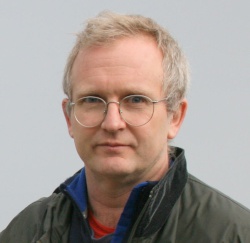Scoop Editorial
Two weeks out from his day of reckoning the man who would be the next President of the great Russian Republic, Vladimir Putin, is putting his best foot forward.
In an interview published in Kommersant newspaper at the weekend, headlined "The Iron Putin" - he again pushed the impression of himself as the "strong" and “moral” leader who would lead Russia to a new, brighter future.
And as he did so he pushed a line he appears increasingly inclined towards – blaming the messenger.
Referring to the Radio Liberty Journalist Andrei Babitsky - who was arguably the first to report Russian atrocities against civilians in Chechnya - Putin launched a broadside.
"What Babitsky did was more dangerous than shooting from a machine gun," he said.
"The first [Chechen] war was lost because of the moral condition of society. Society did not understand the ideals that our soldiers were fighting for," he said. "Babitsky and others like him tried to bring that back. He worked directly for the enemy."
Also at the weekend he made another remark that reinforces the impression that journalists in general are on the would-be-Russian-President’s list of least favourite people.
After meeting with UK Prime Minister Tony Blair, the latest in a series of world leaders who have made the trip to Moscow, he described a slogan which supposedly decorated a Chechen terrorist camp: "Allah is above us, the creeps are below us".
Later he remarked - "The creeps are all of you" - pointing to a throne room full of journalists and officials in one of the Tsars' palaces.
If Putin is angered by reporters and journalists then perhaps it is appropriate in light of the latest news to emerge concerning the apartment bombings which sparked the Russian offensive in Chechnya.
It is often said that a week is a long time in politics. Two weeks is twice as long and the latest news is just the sort of news that could do some damage to the seemingly impervious election campaign of the former cold war spy.
In a report published yesterday in the Observer Newspaper it was revealed that two FSB (the replacement for the KGB) agents were caught red-handed by police with a bomb under an apartment building in Ryazan.
The bomb was defused by bomb squad officer Yuri Tkachenko who confirmed in the Observer report that it was of the same construction as the bombs which blew up several apartment buildings early last year, killing hundreds of ordinary Russian citizens.
These bombings were the trigger which justified and sparked the offensive against the “bandits and terrorists” of Chechnya upon which Vladimir Putin has contructed his bid to become Russian President.
“The third bomb did not go off because the bombers were caught red-handed,” The Observer reports today.
“They were Russian, not Chechen, and when they were arrested by local police they flashed identity cards from the FSB - the new styling for the KGB, the secret police Putin headed before he became Russia's acting President. Two days later the FSB announced that the third bomb had only been 'a training exercise'.”
Suspicions that the bombings were the work of Russian security as opposed to Chechen rebels have been widespread ever since the bombings took place for a variety of reasons, not the least that the Chechen’s have always vehemently denied any involvement in the attacks.
Among the reasons the apartment bombings have always looked fishy:
- that they were targeted at ordinary working class Russian civilians rather than an apparently military target;
- that no evidence has ever been produced to link them to the Chechen rebels;
- that the bombings stopped so suddenly, and have never since been repeated – even though the Chechens have since been far more comprehensively pushed into a corner;
- that the bombings were so incredibly convenient as far as Vladimir Putin’s election campaign was concerned.
That said, the difference between suspicions, and what we have now, actual evidence of security service involvement in the bombings is very important.
Should this news be widely reported inside Russia over the next two weeks then there is a chance it could affect the outcome in the upcoming election.
After all, while the Russian public might be inclined to turn a blind eye to the totalitarian tendencies of a great moral leader. The same tendencies in light of such a monstrous piece of deceit as the organised killing of his own public can appear ever so much more alarming.



 Eugene Doyle: The Fall Of Saigon 1975 - Fifty Years Of Repeating What Was Forgotten
Eugene Doyle: The Fall Of Saigon 1975 - Fifty Years Of Repeating What Was Forgotten Peter Dunne: Dunne's Weekly - Trump's Tariffs Still Pose Risks For New Zealand
Peter Dunne: Dunne's Weekly - Trump's Tariffs Still Pose Risks For New Zealand Keith Rankin: Barbecued Hamburgers And Churchill's Bestie
Keith Rankin: Barbecued Hamburgers And Churchill's Bestie Gordon Campbell: On Why The US Stands To Lose The Tariff Wars
Gordon Campbell: On Why The US Stands To Lose The Tariff Wars Eugene Doyle: Before It’s Too Late - Reimagine New Zealand’s Military Future
Eugene Doyle: Before It’s Too Late - Reimagine New Zealand’s Military Future  Binoy Kampmark: Gender Stunts In Space - Blue Origin’s Female Celebrity Envoys
Binoy Kampmark: Gender Stunts In Space - Blue Origin’s Female Celebrity Envoys